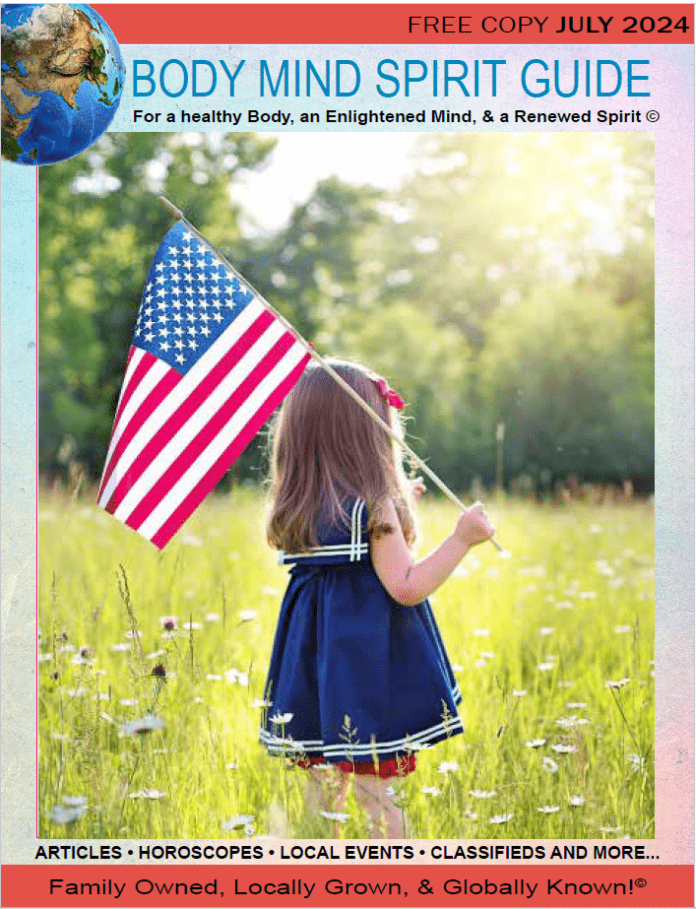By Kathy Van Peteghem
As America celebrates its Independence Day on July 4th, one has only to imagine how a group of unique, courageous, and passionate individuals came together in the late 1700’s to forge and create documents that would not only plant the seed for a new nation to be born; but also these documents would continue to be as effective and useful in our present timeline by standing up for the rights of each American living today.
For more than 225 years, we have depended upon Our Constitution, Bill of Rights, and Declaration of Independence. Known collectively as the Charters of Freedom, these reflect and affect all who live in America.
Charters of Freedom Overview
The Constitution of the United States acts to unite groups of states with different interests, laws, and cultures, which unifies its citizens as members of the whole.
The Bill of Rights spells out Americans’ rights in relation to their government. It guarantees civil rights and liberties like freedom of speech, press, and religion. It sets due process of law and reserves all powers not delegated to the Federal Government to the people or states. It specifies that “the enumeration in the Constitution, of certain rights, shall not be construed to deny or disparage others retained by the people.” (www.archives.gov/founding-docs)
The Declaration of Independence motivates Americans to defend against humankind’s tyranny. Americans must be active and passionate about their country. Standing up for a righteous cause bestows a better life for all.
As spoken by many thought leaders throughout our history, many Americans will recognize the famous Preamble:
“We hold these truths to be self-evident, that all men are created equal, that they are endowed by their Creator with certain unalienable rights, that among these are Life, Liberty and the Pursuit of happiness.”
The Next Chapter
As our country, along with its people, continue to evolve into states of higher consciousness, Americans are seeing a collection of energy forces now surfacing that will either rise Americans up into a better way of thinking and living or constrict their thinking and living by denying them the very core principles of life, Liberty and the Pursuit of happiness. Like many of our ancestors, we can all agree that daily life can be challenging and often unpredictable. However, like in the past, we can revisit our Charters of Freedom and move our country in the right direction to rise and shine brightly once again.
The Tool of Perspective-Taking
For those not familiar with the tool of Perspective Taking, it is the ability to step outside of our own thoughts, beliefs, and emotions and to understand another’s point of view by keeping an open mind, having an honest curiosity, and a willingness to challenge one’s own belief systems and biases. Many psychologists and researchers point out that although it is like having empathy, the difference is Perspective Taking removes the “feeling” into another’s emotion. Thus, it allows us to gain a better understanding of ourselves and those we relate with.
The Benefits
Many experiments and trials have found that perspective-taking improves the core brain regions involved in creativity, problem-solving, and innovation.
We also improve our active listening skills and increase our awareness of our world. Because of this, we find our work productivity, work collaboration, and overall relationships with each other will improve. As we feel more supported, less judgmental, more at ease agreeing to disagree, and appreciative of each person’s unique contributions to this country, this improves our mental and physical health, which then spreads out into the communities.
Perspective Taking Pitfalls
As with every tool and being human, we must consider a few cautions when applying the Perspective-taking tool. The Teaching Social Perspective resource cited by Michelle Gaolle from his “The Power of Perspective “article lists four possible traps:
Fundamental Attribution Error: We blame others when bad things happen to them but blame external attributes when bad things happen to us.
2.
Naïve Realism: We see the world through our lenses, and we expect others to see what we see.
3.
Intergroup Bias: We have our tribe and prefer to work only with our tribe.
4.
Confirmation Bias: We selectively focus on information that confirms our beliefs.
Thus, as we Americans reflect on our nation’s birthday and we all gather to celebrate it in our own unique style, let us consider the unique gifts we share with each other and strive to be mindful to understand our differences and many perspectives. We all have the freedom to choose from a wiser, innovative list of options that can enable us to expand our understanding of ourselves and each other and create a country where all Americans can live without fear, hate, lack, suppression, and deception. Like our forefathers who took action to plant the seeds of freedom, spiritual truths, and the creative spirit, so too can we activate our visions of prosperity, innovative growth, and the freedom to define what it is to be American.
Kathy Van Peteghem enjoys the creative side that embraces the body, mind, and spirit. She is a writer, photographer, musician, artist, gardener-herbalist, and nature lover who releases a stressful day with tap dancing and Gi-gong. She loves living life from the heart and hopes to inspire others to do the same. ktvan@comcast.net











